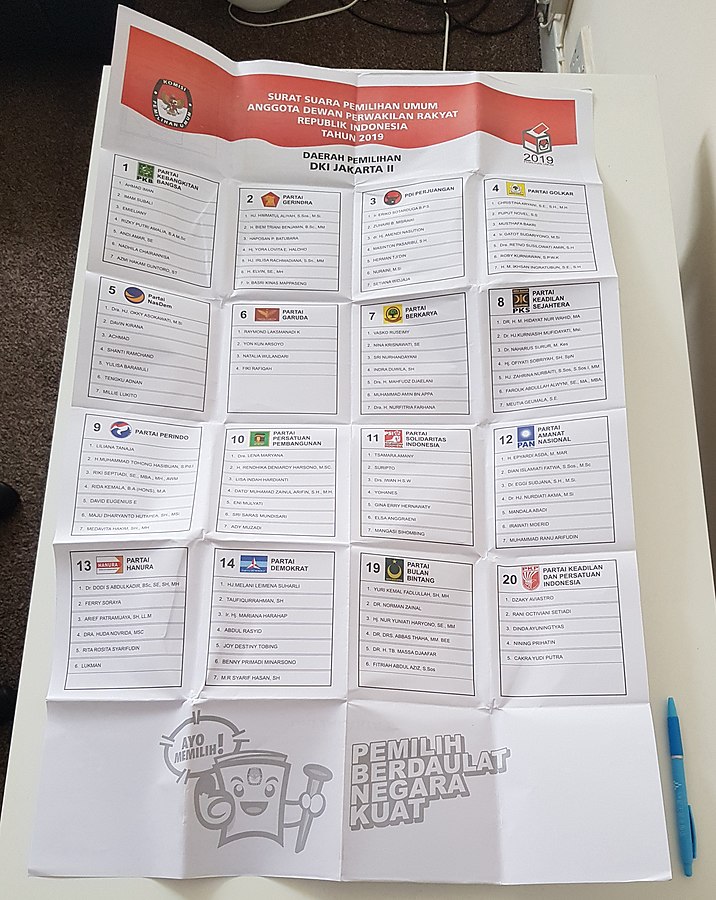III. Elections and (Birthday) Parties
Election 2024
Indonesia, like the United States, has a major election next year. I have been catching up on how Indonesia fills elected offices through general elections. The Constitutional Court decided a major opinion on the form of proportional representation on June 15. Then from June 18-20, I had the opportunity to participate with PUSaKO in an election monitoring workshop hosted by Perludem, the Association for Elections and Democracy, and supported with funding from the USAID Asia-Pacific Regional Support for Election and Political Transition Program.
Indonesia has what’s called an open-list proportional representation system for filling legislative seats,
Political parties have a central constitutional role in post-reformation general elections, and the DPR seats no independent legislators. Article 22(E)(3) of the Constitution of 1945 provides, “The participants in the general election for the election of the members of the DPR and the members of the DPRDs are political parties.” Petitioners to the Constitutional Court challenged the open list prescribed in Law No. 7 of 2017, arguing that the open list obstructs candidate loyalty to their parties and promotes money politics. The Constitutional Court rejected their arguments, holding that while these two systems have distinct advantages and disadvantages, the open list is compatible with the constitutional vision for the role of political parties. The Court left open the possibility of reforms to the open list system but insisted that improvements must be made before beginning of election stages, effectively putting the issue off during the 2024 election cycle.
There are some interesting distinctions and parallels with American elections here. While (two) political parties in the US are of course incredibly powerful, the US Constitution has nothing to say about political parties, and independent candidates are free to run for President or Congress. But independent or third-party candidates are generally at a comical disadvantage. When we are talking about who will be on the ballot in a general election, we are most often talking about primary campaigns, the procedures for which heavily involve the parties.
Election Workshop
We spent a lot of time in the election monitoring workshop talking about money politics and how to reign in and/or report distortive campaign spending practices. I thought a lot about how contemporary First Amendment doctrine obstructs a lot of the fertile discussion that I was hearing about this in the United States, short of when we are talking about outright vote-buying. Money talks! If I am a billionaire who wants to spend millions of dollars running attack ads and sending mailers through a Political Action Committee, then Citizens United tells the showrunners for American elections that they cannot do much to stop me.
We also spent a lot of time talking about misleading information and hoaxes on social media, which of course overlaps heavily with recent experience in American elections, and the organizers showed us some very helpful tools like the Meta Ad Library for tracking ad buys on social media, including the run dates, spending totals, and volume of interaction. Election observers can use these to proactively monitor and fact-check what PACs and candidates, especially those with a bad reputation for candor with their audience, are putting on the internet. Ads that violate platform policies can be reported and potentially removed. Ads that violate campaign rules can be reported to election runners. For instance, in Indonesia, I learned there is supposed to be a “quiet week” in the week before an election, during which candidates may not run ads, so a proactive person or organization might check the ad library and make sure campaign ads are not running during the prohibited period.
I celebrated my birthday during the election workshop. I was flattered that the team from PUSaKO brought me a cake, which we enjoyed together in the hotel conference room venue before going out for evening Soto noodle soup dinner. I have been continuing my research and writing on omnibus lawmaking and environmental regulation. More about that next week. By the time of my next post, I will be relocated to Jakarta.
PUSaKO brought me a cake, which we enjoyed together in the hotel conference room venue before going out for evening Soto noodle soup dinner. I have been continuing my research and writing on omnibus lawmaking and environmental regulation. More about that next week. By the time of my next post, I will be relocated to Jakarta.